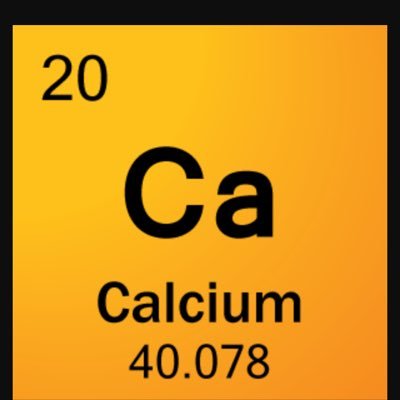- Atomic No Of Calcium Acetate
- Atomic No Of Calcium Hydroxide
- Atomic No Of Calcium
- Atomic No Of Calcium Fluoride
Its atomic number is 20. Its atomic mass is 40 u (approx). This discussion on What is the atomic no. And atomic mass of calcium? Is done on EduRev Study Group by Class 9 Students. 2020-11-21 by Nick Connor Atomic Mass of Calcium Atomic mass of Calcium is 40.078 u. Atomic number of calcium is 20. Number of protons = number of electrons = 20 First shell can accommodate 2 electrons so K = 2. Second shell can accommodate maximum of 8 electrons so L =8. The atomic number of calcium is 20. Electronic configuration of Calcium is Ar 4s2. It was discovered by Humphry Davy in 1808. Calcium is also found in ocean water and is about the eighth most abundant elementfound in the ocean.
What is the mass number of a Calcium atom if it has 20 neutrons?
1 Answer
Explanation:
First thing first, you need to make sure that you have a clear understanding of what mass number actually is.
As you know, the nucleus of an atom contains protons, which are positively charged particles, and neutrons, which are neutral particles.
An atom's mass number will always tell you how many protons and neutrons its nucleus contains.
In your case, you know that an atom of calcium,
This means that in order to get its mass number, all you need to know is how many protons are found in its nucleus.
As you know, the number of protons an atom contains in its nucleus is given by that atom's atomic number. A quick look in the periodic table will reveal that calcium has an atomic number equal to
Now, in order for an atom to be an atom of calcium, it Must contain
Therefore, the mass number of this calcium isotope will be
You are dealing with the calcium-40 isotope,
Related questions
The element calcium has the atomic number of 20 and the mass number of 40, how many neutrons does it have?
2 Answers
Explanation:
There are few simple rules to follow.
(1) The atomic number is equal to the number of protons.
(2) In neutrally charged elements, the number of electrons is the same as the number of protons.

Otherwise, positive charge means that the element lost an electron and negative charge means it gained an electron.
(3) The atomic mass is equal to the sum of the number of protons and number of neutrons.
Atomic No Of Calcium Acetate
or
So if you say that
Vst and au and rewire support download. 40 = 20 + number of neutrons
40 - 20 = number of neutrons
Therefore,
Atomic No Of Calcium Hydroxide
Woohoo for money mod sims 4 download. number of neutrons = 20
An atom of the calcium-40 isotope has
Explanation:
Atomic No Of Calcium
Isotopes are named for their mass numbers, for example, carbon-14. The mass number of an isotope is the sum of the number of protons and neutrons in the atomic nucleus. The atomic number is the number of protons.
The calcium-40 isotope has a mass number of
Atomic No Of Calcium Fluoride
Related questions
